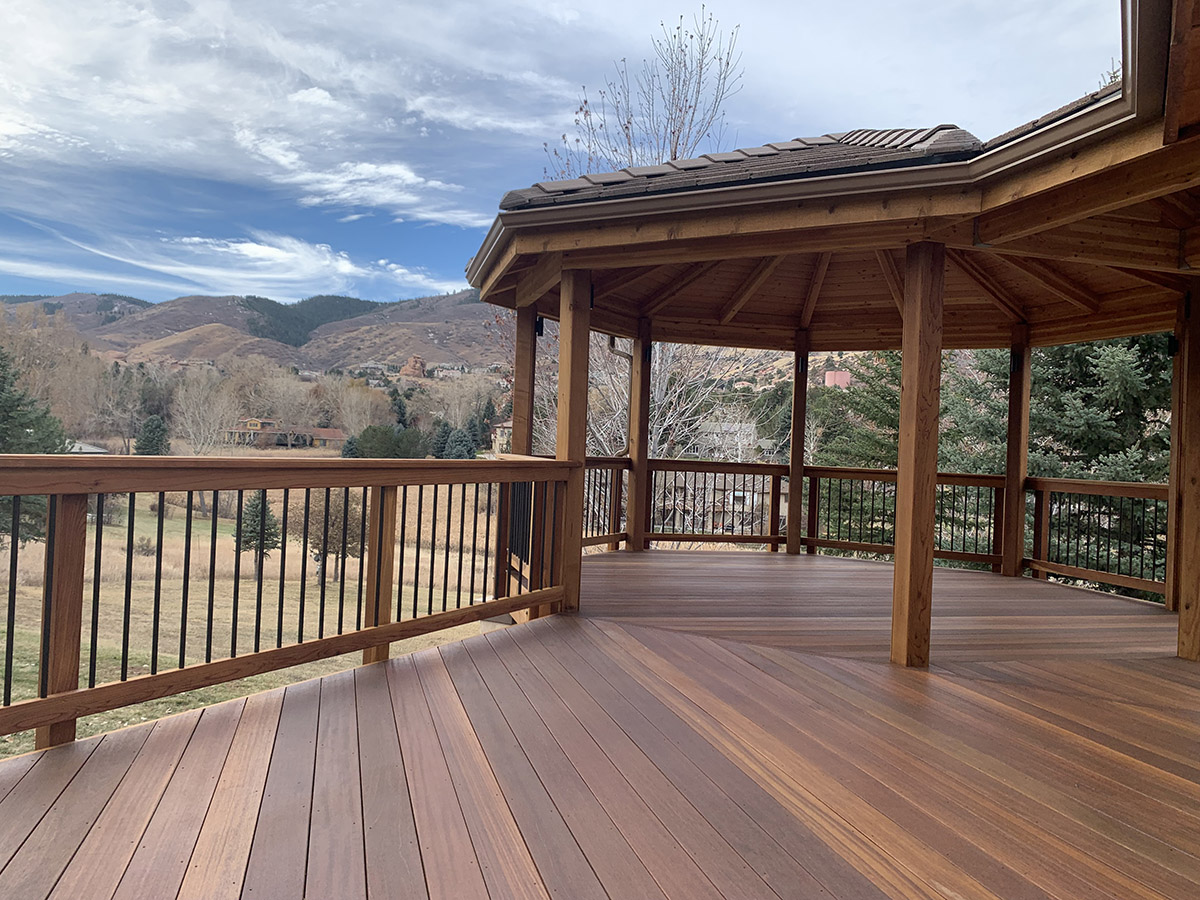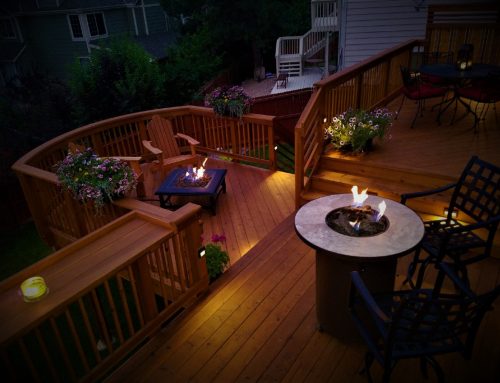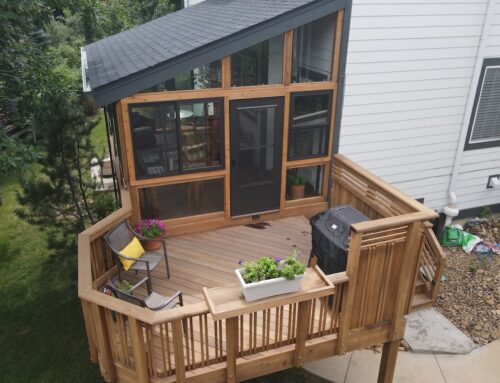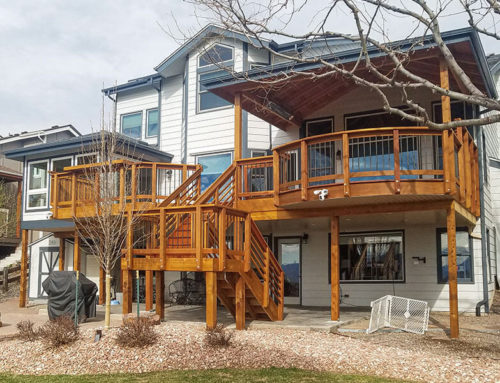What does a set of golf clubs, some old batteries, and a freshly picked smoked turkey carcass have to do with spring cleaning?
They’re the spoils of one of the biggest trends in spring cleaning since the KonMari Method.
This spring, two emerging trends are gaining traction among those seeking a minimalist lifestyle and sustainable consumption habits: Buy Nothing Groups on Facebook and the Buy Nothing Year challenge.
As you clean off your porches and prepare for an epic deck season, let’s examine the two trends and see how organizing can improve outdoor comfort and build community.
Buy Nothing Groups: Sharing Resources, Building Communities
It’s no secret that housing is expensive these days. Let alone furnishing a home your young family recently purchased. After buying a new home in Morrison, Liz Finney turned to her local “Buy Nothing” group on Facebook to add a few bar chairs to her kitchen island. When she spotted three “like new” options on the forum, she jumped on them. Her cost? Zilch.
Buy Nothing Groups are virtual communities within Facebook where members offer items they no longer need for free or request items they require. These groups emphasize sharing resources within neighborhoods, reducing waste, and fostering a sense of community.
Members can declutter their homes while helping others find valuable items without spending money or contributing to environmental waste.
Now, Liz often scans the group for great deals. She scored a set of gently used golf clubs for, you guessed it, nada, but she is also very active with placing things she doesn’t need on the site for others. When I talked to her about it after a holiday meal of smoked turkey, I jokingly said, “What about this turkey carcass? Would someone want that?”
Her eyes lit up! “You’d be surprised!”
She snapped a picture, posted the bones on the page, and typed out a description explaining that she knew this was weird but wanted to know if anyone would have a use for these for stock, adding she’d hate to let them go to waste.
Almost immediately, there were interested members of the community discussing all of the great broth they could make with the leftovers, which otherwise would end up in the trash. It was a revelation, and the discussion was refreshing from the types of dialogue we are accustomed to on social media. Instead of attacks and negativity, there was support for finding ways to reutilize waste.
Besides golf clubs, bar stools, and a pile of bones, one of the most useful transactions Finney has witnessed is the request to use another member’s Ridwell box to safely discard spent batteries. Ridwell is a service that takes difficult-to-recycle materials that would pose a risk to the environment if discarded in a landfill.
One of the defining features of Buy Nothing Groups is their focus on local connections. By engaging with neighbors, these groups promote a sense of belonging and reduce reliance on distant supply chains. This trend aligns with the growing movement towards sustainable living and responsible consumption.
The Buy Nothing Year: A Journey Towards Minimalism
On a larger scale, the Buy Nothing Year challenge takes the principles of Buy Nothing Groups to the next level. Participants commit to refraining from purchasing non-essential items for an entire year, relying on what they already own, or acquiring necessities through sustainable means like swapping, borrowing, or buying secondhand.
The Buy Nothing Year is not just about decluttering physical spaces but also about decluttering our lifestyles and reevaluating our relationship with material possessions. It encourages mindful consumption, reduces waste, and promotes financial savings. Moreover, it fosters creativity as participants find innovative ways to meet their needs without buying new items.
Benefits of Decluttering: More Than Just Tidying Up
Decluttering goes beyond creating tidy spaces; it has numerous benefits for our physical, mental, and emotional well-being. When we clear out excess belongings, we reduce visual clutter, which can lower stress levels and improve focus. Organizing our surroundings can also lead to a greater sense of control and accomplishment.
Additionally, decluttering encourages us to be more intentional about what we bring into our lives. By letting go of items we no longer use or need, we make room for things that truly add value and joy, like some new, gently used deck furniture or a sun shade.
This process can be liberating and empowering. It may free up your storage space, allowing you to appreciate a simpler life of contentment on your deck.
Happy deck decluttering!







Это игровой платформу, на котором сконцентрированы все самые
лучшие онлайн https://ramblermails.com/.
Your blog is a breath of fresh air in the often mundane world of online content. Your unique perspective and engaging writing style never fail to leave a lasting impression. Thank you for sharing your insights with us.
먹튀검증커뮤니티에 참여하여 안전한 온라인 놀이터 정보를 공유하고 받아보세요! 다른 사용자들의 경험과 후기를 통해 사기 피해를 예방하고 안전하게 게임을 즐길 수 있습니다.